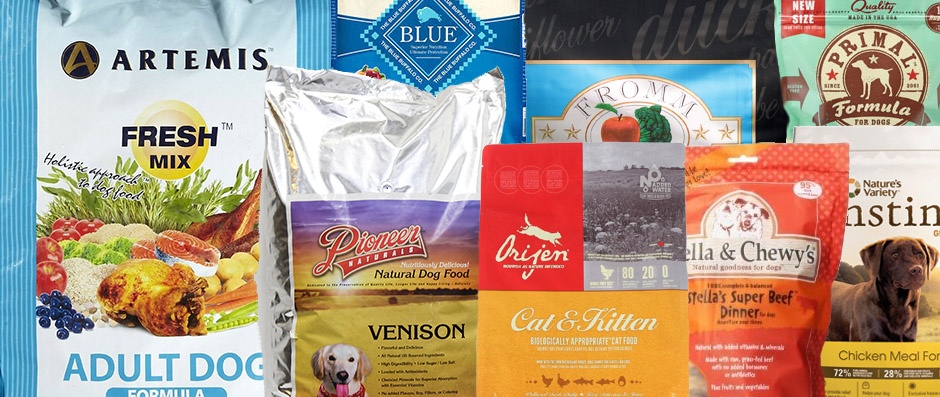Just like people, dogs need a healthy balanced diet. In fact, dogs are even more sensitive to food changes due to the complexity of their digestive system.
According to Amanda Baltazar from petmd.com, a balanced dog diet must contain :
- Protein from an animal source, for instance, chicken.
- Vegetables, not any and every vegetable, Onions, garlic, wild mushrooms are toxic and can easily kill your dog.
- Whole grains. According to Emily Cardiff from onegreenplanet.com, veterinarians say that Whole grains for dogs, can reduce several health risks when their diet includes whole grains. Grains are an excellent source of vitamins, minerals, and fiber, says Dr. Jennifer Adolphe
- Fats, and not just any type of fat. omega 3 and Omega 6 fatty acids for skin and brain function.
- Nutrients. Dogs need key nutrients, the most necessary are vitamin C and minerals like magnesium, calcium, and phosphorus
Like most carnivores, protein is the most important nutrient in dogs’ diets. It helps your dog grow and develop strong muscles, assists in creating hormones and enzymes, repairs body parts including internal organs.
Unlike fat, protein can’t be stored in the body, that is why dogs need it supplied in every day’s meal. The quantity differs from one dog to another according to activity levels; very active dogs, for instance, hunting dogs, need much more protein than less active dogs.
What happens to unused protein?
Unused protein gets processed by the kidneys and gets discharged through the urine. That is why dogs that eat too much meat and don’t do much work tend to urinate more than active dogs or dogs with a lesser appetite.
Age can affect how much protein your dog needs. Furthermore, some Physical conditions require more protein for the dog. For example, Injuries, coat sickness (protein plays a major role in forming and renewing your dogs’ coat). Furthermore, pregnant and lactating female dogs need more protein so they can produce enough milk and feed their babies.
If protein is that important (basically the most important nutrient ever!), then, why are there low protein dog foods?
Just like humans, dogs can get sick too. Dogs can have some chronic health conditions. For instance, Dog Diabetes, Dog high blood pressure, and Dog Kidney Failure. These conditions oblige you sometimes to lower the amount of protein your dog must consume.
Dogs with kidney failure need low protein dog foods
Kidney failure is a chronicle disease where the kidneys cannot perform their task anymore. Kidney failure, also called end-stage renal disease (ESRD), is the last stage of chronic kidney disease.
According to kidneyfund.org, Diabetes is the most common cause of ESRD. High blood pressure is the second most common cause of ESRD. Other problems that can cause kidney failure include:
- Autoimmune diseases, such as lupus and IgA nephropathy
- Genetic diseases (diseases you are born with), such as polycystic kidney disease
- Nephrotic syndrome
- Urinary tract problems
Sometimes the kidneys can stop working very suddenly (within two days). This type of kidney failure is called acute kidney injury or acute renal failure. Common causes of acute renal failure include:
- Heart attack
- Illegal drug use and drug abuse
- Not enough blood flowing to the kidneys
- Urinary tract problems
kidneys do many jobs to keep you healthy. Cleaning your blood is only one of their jobs. They also control chemicals and fluids in your body, help control your blood pressure and help make red blood cells.
low protein dog foods for kidney disease
One of the kidney’s main jobs is getting rid of unused protein. If this task is excessively performed i.e. in the case of lazy overfed dogs, then, the consequences will be damage of the kidney if not a total cease of function.
In case your dog has a damaged kidney, low protein dog foods are what you should feed your pet. Low on protein does not mean that your dog has no protein at all, it simply means that your dog will be getting the minimal protein requirements, just enough for your pet to operate, grow and be active in a normal natural way.
Low protein dog foods vary to different kinds and brands, each according to the dogs’ health state. A damaged kidney is not totally useless. It simply cannot perform its task 100% accurately, therefore, the amount of protein contained in low protein dog foods for a damaged kidney is slightly below the usual. However, a kidney that ceased to function requires to limit the amount of protein the body intakes to the minimal amount possible i.e. if the dog needs 10 grams of protein to survive, u should be feeding it 9 grams only.
Throughout the life stages of your dog, its nutritious requirements change. Knowing the nutritious requirements of your dog is not an easy task, however, it’s your task. Every dog owner has the responsibility to fully understand how much food his pet needs, not just how much ( quantity), but also what food (quantity). Your veterinarian can help you find out more about the appropriate diet for your pet.
Since dogs’ digestive system is sensitive to diet changes, make sure to always introduce the changes in small amounts to avoid severe complications. If you ever notice strange reactions to the change in diet, consult your vet immediately.
Low protein dog foods are case sensitive type of food, therefore, you should not introduce it to a healthy dog’s diet. Vise versa, if your dog is at the beginning of having a kidney failure or a high protein-related illness, switching to low protein dog foods will certainly help your pet improve. Thus, you should always follow your dogs’ diet and health in parallel.



